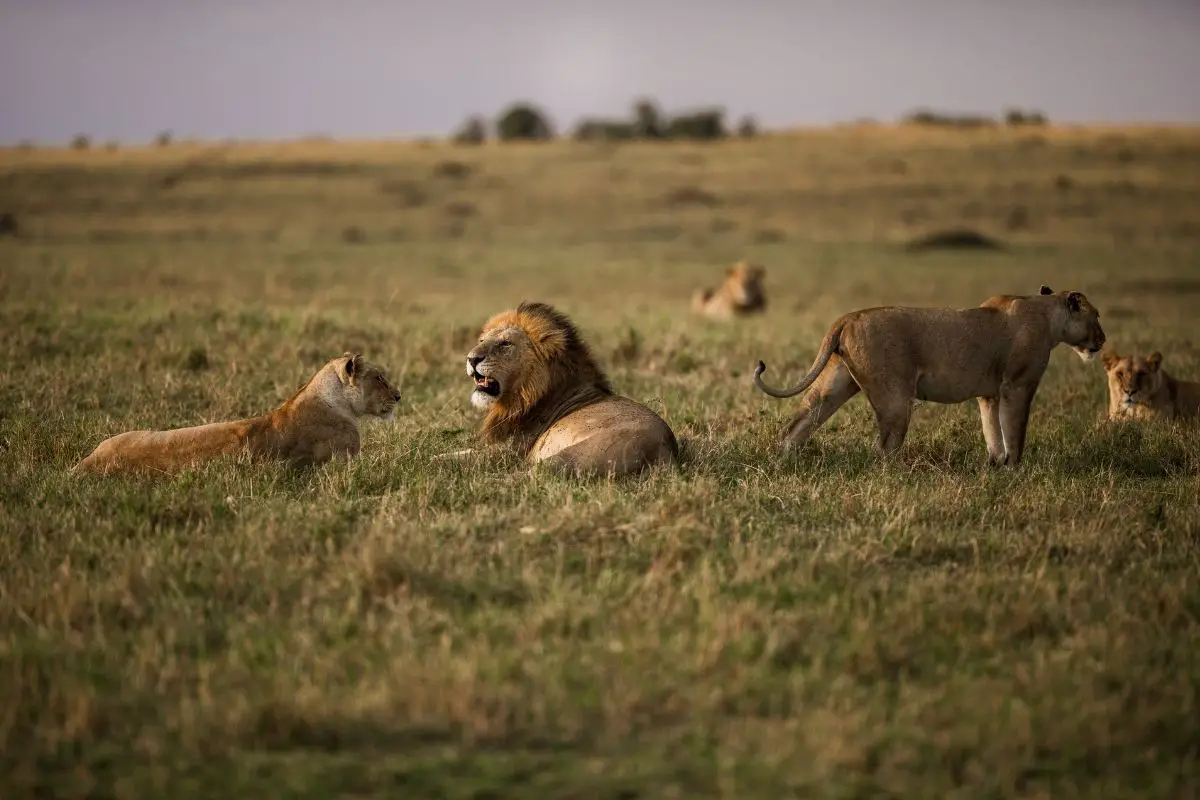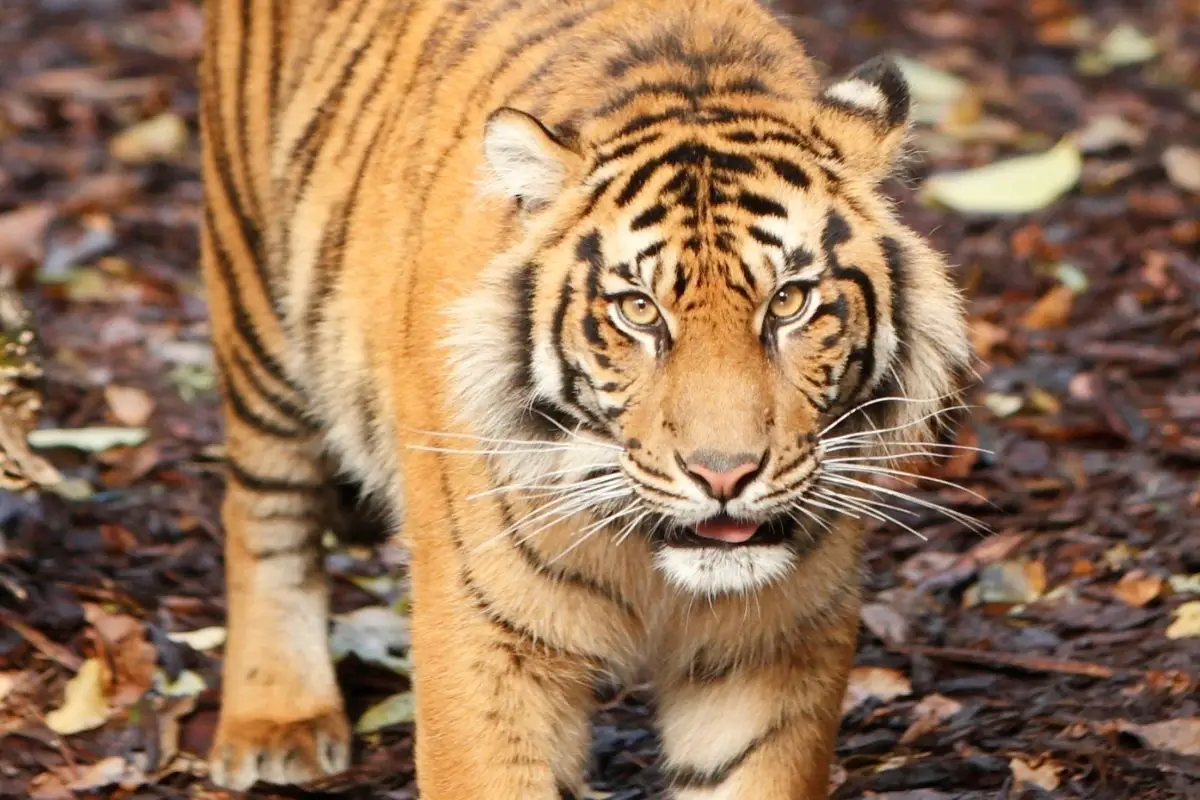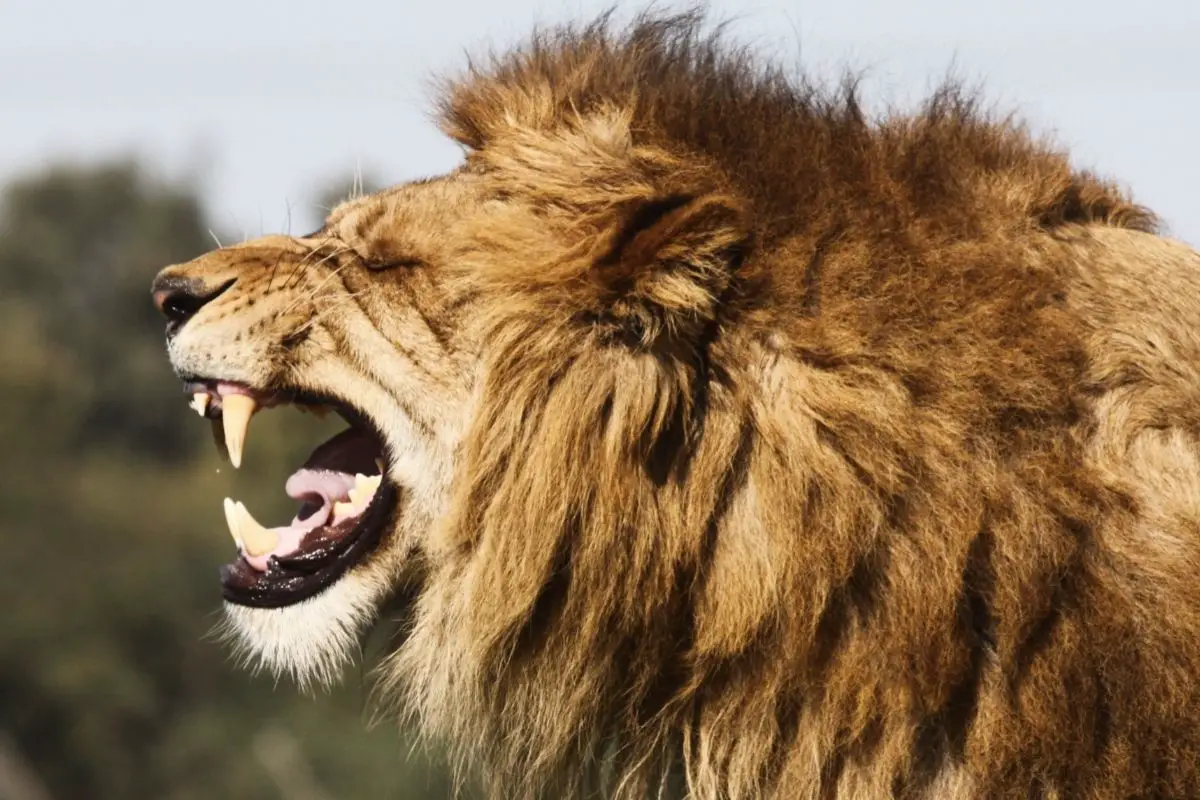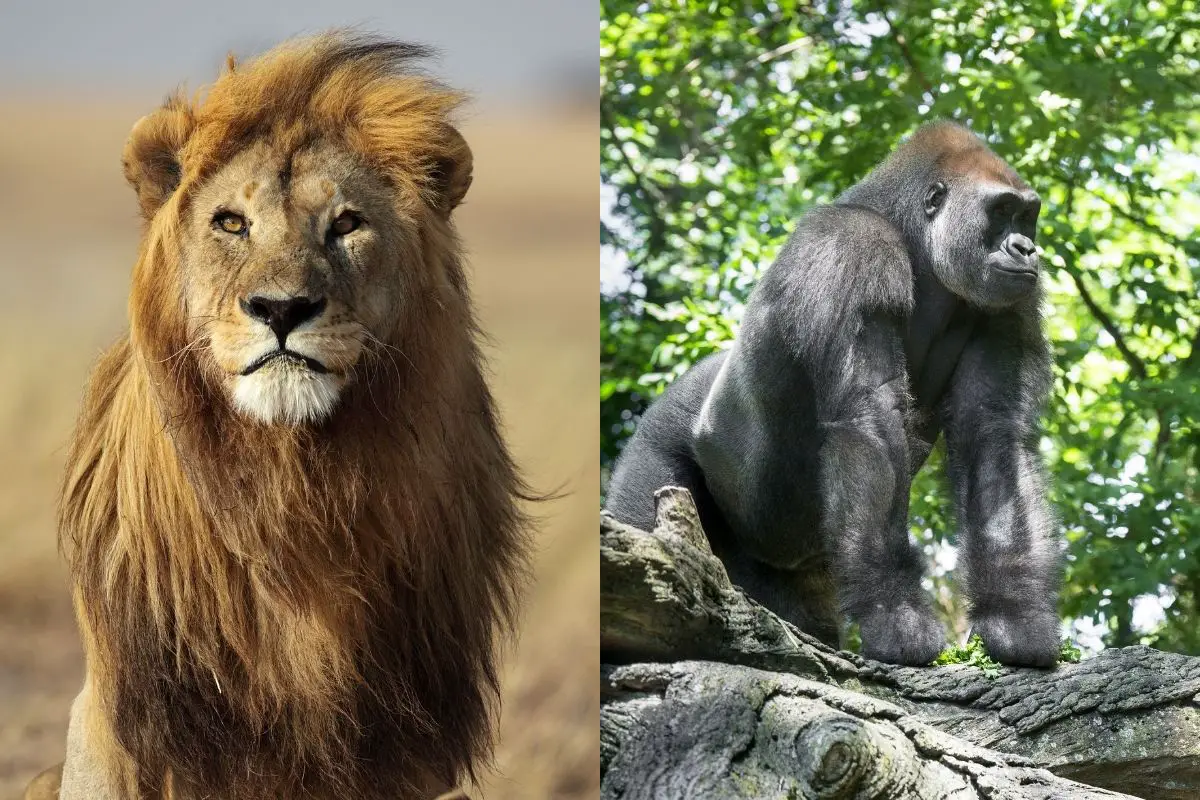Updated: July 2025
You’ve probably seen viral videos of humans cuddling and playing with lions, making these apex predators look like oversized house cats.
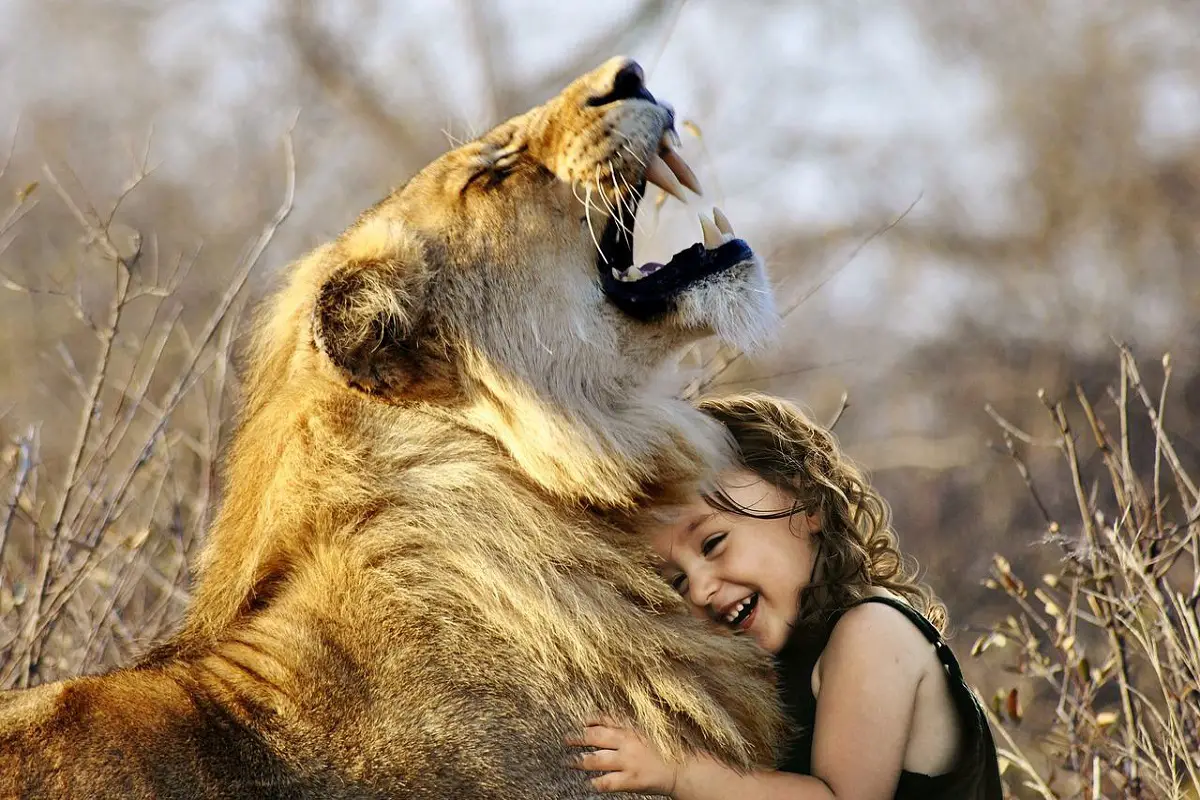
These heartwarming clips often show lions displaying affectionate, almost kitten-like behavior toward their human companions. But do these extraordinary moments represent the norm, or are they dangerous exceptions?
The reality is complex: While lions can form bonds with humans under specific circumstances, they remain wild predators with unpredictable instincts. Understanding this balance is crucial for anyone considering wildlife encounters or simply curious about these magnificent cats.
Let’s explore the truth behind lion-human relationships, examining when these interactions can be positive and when they turn deadly.
Lion Social Behavior: The Foundation of Human Bonds
Lions are naturally social animals, living in complex family groups called prides. This social structure makes them more capable of forming bonds with humans than solitary big cats like tigers or leopards.
Key factors that influence lion-human relationships:
• Early socialization: Lions raised from cubs with consistent human contact are more likely to accept humans as part of their social group
• Consistent caregivers: Regular interaction with the same people helps build trust and recognition
• Proper nutrition: Well-fed lions are less likely to view humans as prey
• Stress-free environment: Calm, predictable surroundings reduce aggressive behaviors
However, even the most socialized lion retains its wild instincts. A single moment of stress, illness, or territorial behavior can trigger dangerous responses, making every interaction inherently risky.
Are Lions Friendly to Humans?
The answer depends entirely on context. Hand-raised lions in controlled environments can develop genuine affection for their human caregivers, displaying behaviors like:
• Purring and head-rubbing (similar to domestic cats)
• Playful behavior and gentle mouthing
• Seeking attention and physical contact
• Showing distress when separated from familiar humans
However, “friendly” doesn’t mean “safe.” Even well-socialized lions can cause severe injuries through:
• Accidental harm: A playful swipe from a 400-pound lion can break bones
• Territorial responses: Sudden aggression triggered by perceived threats
• Predatory instincts: Rapid movements or running can trigger chase responses
• Hormonal changes: Breeding season or stress can dramatically alter behavior
Wild lions, on the other hand, typically view humans as threats rather than companions. They generally avoid human contact unless protecting territory, cubs, or when desperate for food.
Zoo Lions: A Special Case
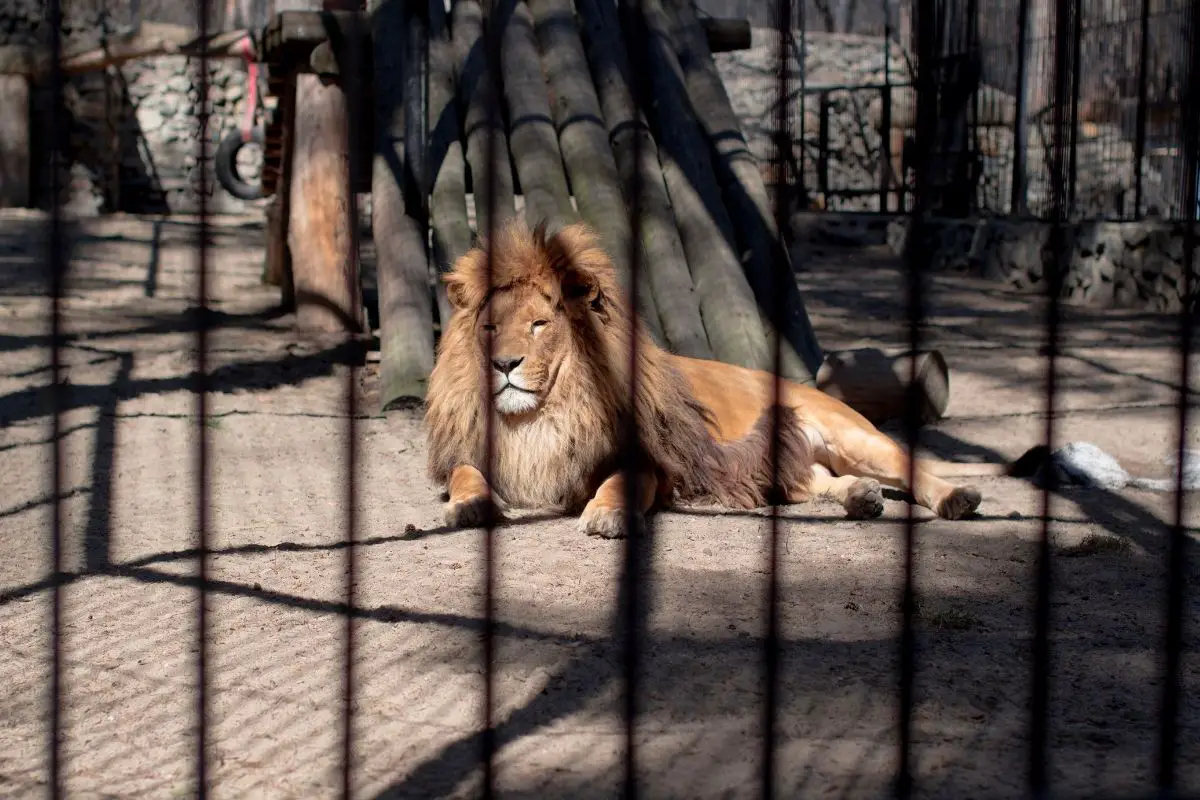
Zoo lions often display the most positive relationships with humans due to:
Optimal conditions for bonding:
• Daily interaction with consistent caretakers
• Regular feeding schedules eliminating hunger stress
• Veterinary care maintaining good health
• Enrichment activities providing mental stimulation
Professional zookeepers understand lion behavior and can read warning signs that untrained individuals might miss. They maintain respect for the animal’s power while building trust through consistent, calm interactions.
Critical safety measures include:
• Protective barriers during public interactions
• Specialized training for all staff
• Emergency protocols for dangerous situations
• Regular behavioral assessments
Even with these precautions, lions remain biologically wild animals whose moods can shift unpredictably. Professional handlers never fully let their guard down, even with lions they’ve known for years.
Lion Cubs: Naturally Playful but Still Dangerous
Lion cubs are indeed more approachable than adults, displaying kitten-like behaviors that make them seem harmless:
• Wrestling and tumbling with caregivers
• Climbing on humans like jungle gyms
• Playful pouncing and tail-chasing
• Vocal communication through chirps and mews
However, cubs grow rapidly and develop dangerous capabilities quickly:
• 6-month-old cubs can already cause serious injuries with claws and teeth
• 1-year-old lions possess significant strength and hunting instincts
• 2-year-old lions are approaching adult size and power
• Adult behavior typically emerges between 2-3 years of age
Many tragic accidents occur when people underestimate a “juvenile” lion’s capabilities or fail to recognize the transition from playful cub to dangerous predator.
Do Lions Fear Humans?
Wild lions typically exhibit cautious behavior around humans rather than outright fear. Their responses depend on:
Factors influencing lion behavior toward humans:
• Previous experiences: Lions in areas with hunting pressure are more wary
• Group dynamics: Lone lions behave differently than those in prides
• Territorial status: Resident lions may be more aggressive than transients
• Hunger levels: Desperate lions are more likely to take risks
If confronted by a lion in the wild:
• Never run: This triggers their chase instinct
• Make yourself appear larger: Raise your arms and stand tall
• Back away slowly: Maintain eye contact while creating distance
• Make noise: Shout loudly to appear threatening
• Fight back if attacked: Use any available weapons or tools
Human-lion conflict typically occurs when lions prey on livestock rather than targeting humans directly. However, old, injured, or desperate lions may turn to humans as easier prey.
Lion Memory and Recognition

Research suggests lions can recognize familiar humans through multiple sensory cues:
Recognition methods:
• Visual identification: Facial features and body language
• Scent recognition: Individual human scents
• Voice recognition: Familiar vocal patterns
• Behavioral patterns: Consistent interaction styles
Famous reunion stories document lions recognizing former caretakers after months or years of separation, suggesting longer-term memory capabilities than previously understood.
However, recognition doesn’t guarantee safety. A lion’s response to a familiar human can still be unpredictable, influenced by current mood, health status, and environmental factors.
The Reality of Lion-Human Relationships
Lions don’t inherently dislike humans, but their relationship with us is complex and situation-dependent. Positive interactions typically require:
• Professional expertise in animal behavior and safety
• Consistent, respectful treatment without dominance struggles
• Proper facilities designed for both human and animal safety
• Understanding of individual personality and behavioral patterns
Zookeepers and wildlife professionals report deep, meaningful bonds with lions in their care. These relationships involve mutual respect, with humans acknowledging the lion’s power and wildness while providing care and enrichment.
Lions typically attack when:
• They feel threatened or cornered
• Protecting cubs or territory
• Suffering from hunger or illness
• Surprised or startled by sudden movements
• Experiencing hormonal changes or stress
2025 Safety Guidelines and Recommendations
For wildlife enthusiasts in 2025:
• Choose reputable wildlife sanctuaries with proper safety protocols
• Maintain safe distances during safari tours and zoo visits
• Never attempt to interact with wild lions
• Report dangerous human-lion encounters to local authorities
• Support conservation efforts that reduce human-lion conflict
The bottom line: While lions can form bonds with humans under controlled conditions, they remain powerful predators requiring extreme caution and professional handling. The friendly behavior seen in viral videos represents years of careful relationship-building by trained professionals, not something the average person should attempt.
Appreciate these magnificent creatures from a safe distance, and support conservation efforts that allow lions and humans to coexist safely in the wild.
- Bengal Cat vs Wild Bengal Tiger: Complete Comparison 2025 - October 31, 2025
- Complete Wild Cat Spotting Guide for Hikers 2025 - October 31, 2025
- Lynx vs Bobcat: Complete Field Identification Guide 2025 - October 30, 2025

